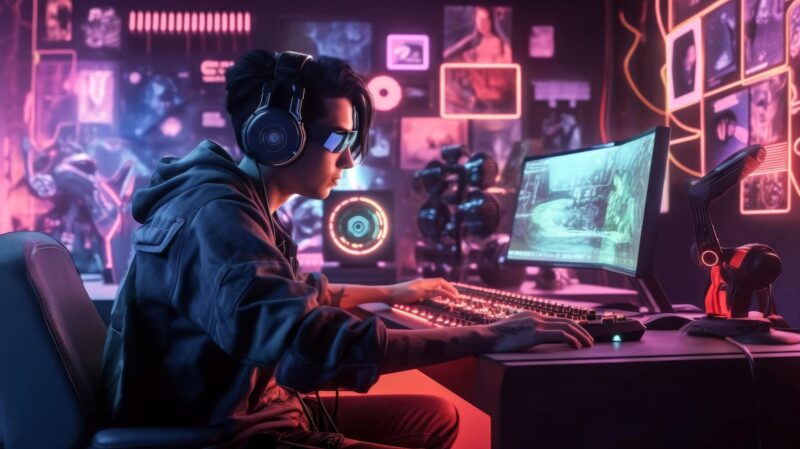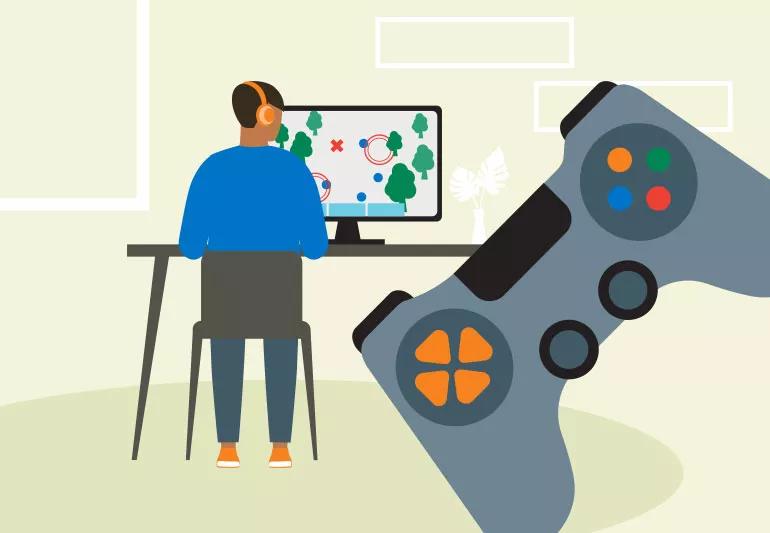Video games have transcended their status as mere entertainment devices to become a significant cultural phenomenon globally. As digital landscapes evolve, the role of video games in shaping, influencing, and reflecting youth culture cannot be overstated. This exploration delves into how video games have permeated various aspects of youth culture, influencing social interactions, education, fashion, and language, thereby shaping a unique global subculture.
Introduction

In the past few decades, video gaming has exploded from a niche hobby to a mainstream cultural force. With millions of young people around the world spending considerable amounts of their leisure time gaming, it’s essential to understand the broader implications of this activity. This post examines the multifaceted ways in which video games impact global youth culture.
Social Interactions and Community Building
-
Creating Global Communities
Video games have been instrumental in connecting people across different geographical and cultural boundaries. Online multiplayer games like “Fortnite” and “League of Legends” offer more than just gameplay; they provide a platform for social interaction. Players collaborate, compete, and communicate with peers from various parts of the world, fostering a sense of community and shared purpose.
Creating global communities is also very helpful in creating websites. This way, the global audience knows you and consciously chooses your brand. Start your own online business today and see how much you can achieve with Grafitis.
-
The Role of Esports
Esports has turned gaming into a spectator sport, where players gain recognition and fame similar to traditional athletes. Tournaments attract thousands of spectators in arenas and millions more online, creating a communal viewing experience akin to world sporting events. This phenomenon has not only legitimized video gaming as a career but has also propelled gamers into roles of cultural influencers.
Educational Impact

-
Learning and Cognitive Development
Contrary to the stereotype of video games as mind-numbing, research suggests that strategic games can enhance problem-solving skills, adaptability, and multitasking abilities. Games often require players to navigate complex environments, make quick decisions, and manage resources — skills that are transferable to real-world scenarios.
-
Gamification of Education
Educational institutions are increasingly adopting gamification to make learning more engaging. By integrating game mechanics into the curriculum, educators aim to boost motivation and enhance the educational experience. This approach has shown promise in teaching languages, history, and even technical subjects more effectively.
Influence on Fashion and Art
-
Video Game Aesthetics in Fashion
The visual design of video games has influenced fashion, with designers incorporating elements from popular games into their collections. This trend is evident in streetwear and high fashion, where motifs and characters from games appear on clothing and accessories, reflecting the games’ cultural significance.
-
Artistic Expression
Video games are recognized as a form of artistic expression, contributing to visual culture. The intricate artistry involved in game design influences other media and has led to exhibitions in major museums, acknowledging video games as a legitimate art form.
Language and Communication

-
Development of a Gaming Lexicon
Gaming has developed its own lexicon, which has permeated everyday language among youths. Terms like “noob,” “gg” (good game), and “lag” are now common in the vocabulary of many young people, indicative of the games’ influence on language.
-
Multilingual Interactions
Online gaming often requires communication across different languages, encouraging players to learn and use new languages. This aspect of gaming promotes linguistic flexibility and cross-cultural communication skills among young gamers.
Challenges and Considerations

-
Screen Time and Health
While the cultural impact of gaming is largely positive, it comes with challenges. The primary concern is the health impact of excessive screen time, which can lead to physical and mental health issues. Balancing gaming with other activities is crucial for maintaining health and well-being.
-
Cultural Sensitivity and Representation
As video games become more globally accessible, developers face the challenge of creating content that is culturally sensitive and inclusive. There is growing scrutiny over the portrayal of race, gender, and stereotypes in games, pushing the industry towards more thoughtful representations.
Conclusion
The impact of video games on global youth culture is profound and multifaceted. As a form of cultural expression, video games influence social norms, educational practices, fashion, art, and language, making them a significant element in the cultural landscape of young people worldwide. Understanding these influences not only highlights the importance of video games in contemporary culture but also encourages a critical analysis of their role in societal development.


